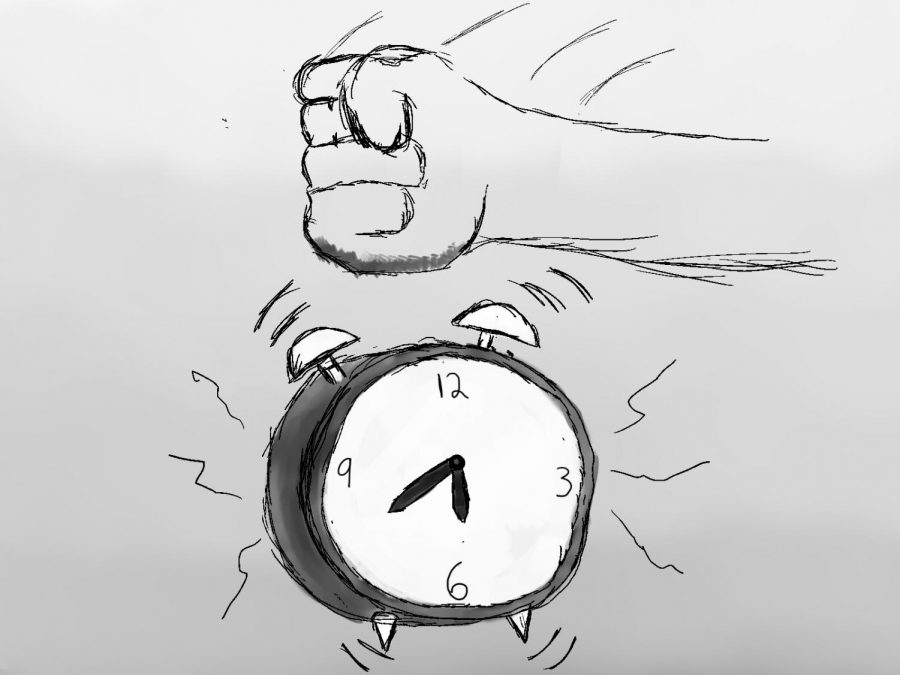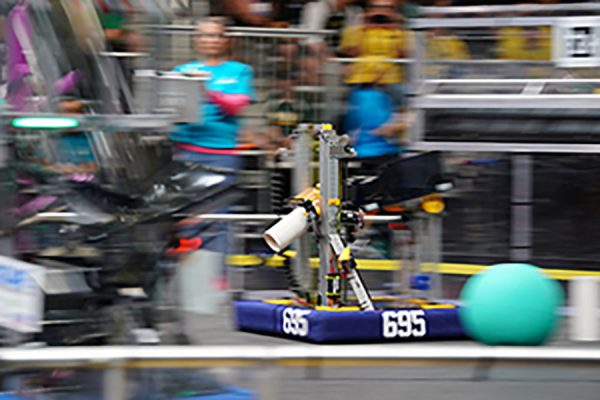New Bell Schedule Brings Late Start, After-School Academy
Alex Shupp via Bcomber.org Archives
This year, Beachwood High School students can sleep 35 minutes later.
The 2019-2020 school year has brought an array of changes, one of which is the new bell schedule.
This is the second year in a row that the schedule has changed. This year, first period starts at 8:10, 35 minutes later than last year. Academy is at the end of the day, rather than after lunch.
Staff and students seem satisfied with the new schedule and appreciate the later start.
“I have been pleasantly surprised with what a difference half an hour in the morning makes,” science teacher Alex Paulchell said. “My drive to work is in the sunlight instead of the pitch black, I have time to get coffee and I have an extra half hour to sleep.”
“It has actually had a huge impact on my ability to be happy,” he added.
Junior Sadie Alter agrees.
“I like the new schedule much better,” she said. “I feel like [the later start time] really helps me out, and I am more focused in my first period than I was last year.”
Junior Dami Aletor is also happy with the new schedule.
“I like the schedule this year because we can come to school later, and I need my sleep,” she said. “I also like the fact that academy is after school; it’s less chaotic.”
A major change in this year’s schedule is the academy period, a designated time in the day when students can seek help from teachers and get work done.
This year’s academy is at the end of the school day, rather than in the middle of the day. Buses leave after academy.
“We’re placing academy period in a position where it can be more openly attended by students,” Principal Paul Chase said.
“You have all the staff available at the end of the day,” Chase added. “Having a set time where everyone’s available [for academy] works a lot better.”
Chase explained how the new academy period will affect student athletes.
“When we talk about the student athlete—you’re a student first and then you’re an athlete,” he said. “This model allows teachers to be available for a half hour before kids go off to sports.”
Paulchell has noticed that his academies are less chaotic this year.
“Last year, my academies were overrun; there were way too many students because there was nowhere to go,” Paulchell said, “but now, I feel like the only students who show up to my academy are the students who need help.”
To judge the effectiveness of the new academy time, Chase is currently collecting data on academy attendance.
“I want to see how many students actually show up at the end of the day for academy,” Chase said.
Chase will use this information to determine if the end of the day academy period is working or if changes should be made.
Because the school year has only just begun, Chase is waiting to see how students and staff respond to the new academy schedule.
Once he collects enough data to measure the effectiveness of after-school academy, he will assess its effectiveness.
“Would it be beneficial to have some morning and afternoon academy? Typically, you wait until mid-year, after you see how things are running for a while,” Chase said.
The later start time has been a popular move among students.
According to Chase, the district implemented a later start time to give students the ability to sleep in.
“There’s tons of educational research you can look at that shows having more sleep helps you in school,” Chase said.
According to The National Sleep Foundation, “Children who seem excessively sleepy during the day are more likely to experience problems with learning, attention, hyperactivity, and conduct than kids who aren’t sleepy.”
In addition, “Sleepiness causes problems with concentration and mood, and can even make it hard for students to stay awake in class.”
Chase believes the later start time will benefit student athletes as well.
“I think that for kids who are so busy with sports going late, it’s great that you can add an extra forty-five, thirty, or even twenty-five minutes to your sleeping patterns every day,” he said. “You add up 25 extra minutes of sleep a day over the course of a year—that’s a lot of rest, which results in less stress.”
This year’s schedule appears to be working well, but as Chase said, only time will tell.

Ian Stender began writing for the Beachcomber in 2018. He covers all types of stories. In addition to writing for the Beachcomber, he’s on the baseball...













